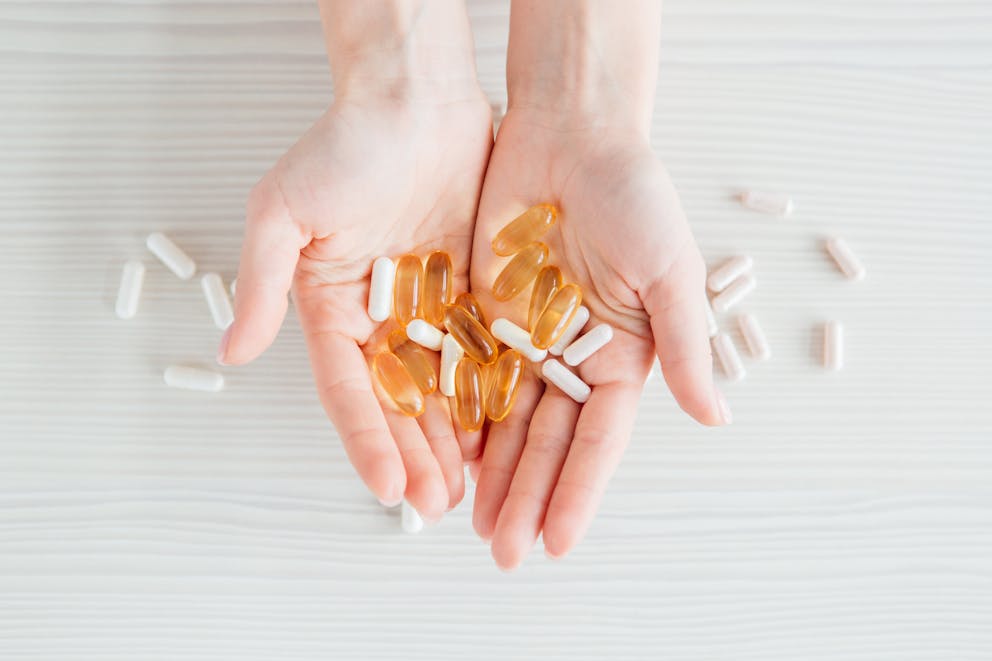Should You Remove Your Gallbladder Because of a Stone
Imagine waking up one day to discover that the key to transforming your health might lurk in your gallbladder. Yes, you heard it right. The spotlight often misses this tiny organ tucked beneath your liver, but let's change that narrative today.
Gallstone disease, a term many might consider 'just another health issue,' could be the unsung hero of understanding our body's intricate dance with nutrition and wellness.
With stats whispering tales of discomfort and enlightenment—40% post-cholecystectomy syndrome, nutrient absorption hurdles—it's high time we zoomed in on these cholesterol stones forming silently within us.
These aren't just ordinary rocks; they serve as breadcrumbs on our journey to unravel the complex effects of what we eat. Gallstones are like uninvited guests at a party inside your body—they show up without warning, stir trouble, and leave you wondering: "Why me?".
But here’s the twist: managing them can unlock chapters of knowledge about weight loss, digestion, and overall health that many overlook. Learning to navigate the arrival of these unanticipated guests sets us on a path toward making wiser health choices.
So, let's see gallstones not just as nuisances but as opportunities for learning and improvement.
Understanding Gallbladder Stones and Their Causes
Gallbladder stones, also known as gallstones, can cause discomfort and complications if not addressed. These stones form when substances like cholesterol or bilirubin harden in the gallbladder, developing small, pebble-like structures.
Understanding the causes of gallbladder stones is crucial for adopting preventive measures and making lifestyle changes to minimize the risk of their formation.
The Role of Bile Salts and Cholesterol
Gallstones form when there's an imbalance between bile salts and cholesterol. This occurs primarily due to a high cholesterol concentration or a deficiency in bile salts.
The formation of these minuscule pebbles can lead to a spectrum of unease, from slight digestive upsets to intense agony.
Your eating habits are pivotal in keeping everything in check. Eating a diet high in fiber, for example, can lower the cholesterol in your blood and might prevent stones from forming.
Factors Depleting Bile Salts
Certain lifestyle choices deplete bile salt levels, increasing gallstone risk. Birth control pills, for example, elevate estrogen levels, which can lower bile salt production.
Similarly, diets high in processed carbohydrates spike insulin levels, adversely affecting bile composition.
Maintaining optimal liver health is essential as it produces the bile needed for digestion. Limiting alcohol intake and avoiding toxic substances are practical steps towards safeguarding liver function and, thus, gallbladder health.
The Impact of Gallbladder Removal
Grasping the aftermath of getting your gallbladder taken out, known medically as cholecystectomy, is vital for those pondering over this operation. Post-cholecystectomy syndrome affects about 40% of individuals who undergo this procedure.
Experiencing symptoms like gas, swelling, feeling sick to your stomach, uncontrolled bowel leakage, difficulty passing stool, and frequent loose stools can significantly disrupt one's everyday routine.
The absence of the gallbladder, a key player in bile storage and concentration, triggers these discomforts. Without it, bile flows directly into the intestines from the liver, leading to digestive issues when consuming certain foods.
Managing these symptoms often requires dietary adjustments and sometimes medication.
For those looking to understand the importance of gallbladder function, resources are available that explain its role in digestion and nutrient absorption in detail.

Nutrient Absorption Without a Gallbladder
The gallbladder plays a crucial role in concentrating bile, enhancing its effectiveness up to 20 times more than when it's directly secreted from the liver. This heightened focus is critical in optimizing the extraction of nutrients.
When the gallbladder is removed, this super-concentration ability is lost, potentially leading to deficiencies in essential nutrients.
Fat-soluble vitamins such as A, D, E, and K may not be adequately absorbed without adequate bile availability.
This deficiency can result in various health issues, including vision problems due to a vitamin A shortage, bone pain and calcium absorption issues tied to vitamins D and K, and an increased risk of bleeding and bruising from insufficient vitamin K.
Beyond these fat-soluble vitamins' malabsorption risks are concerns over essential fatty acids and certain minerals like magnesium that play critical roles in bodily functions but require bile for their uptake. Thus, managing dietary intake becomes paramount post-cholecystectomy.
Dietary Adjustments for Gallbladder Health
Dietary adjustments are essential for maintaining gallbladder health and preventing complications like gallstones. A diet rich in fiber, fruits, vegetables, and lean proteins can help support gallbladder function and reduce the risk of stone formation.
Additionally, limiting the intake of high-fat and processed foods can alleviate stress on the gallbladder and promote overall digestive health.
High Fat Diet with Bile Salts
A surprising twist in preventing gallbladder stones is the strategic combination of a high-fat diet and bile salt supplementation, especially during weight loss.
By embracing a diet rich in fats, we essentially coax the gallbladder into more frequent emptying, diminishing the likelihood of stones taking shape within it. Supplementing with bile salts further aids this process by compensating for any potential bile salt deficiency.
Modifying Dairy Consumption
Ta tweaking your dairy intake can be beneficial to support your gallbladder health. Opting for low-fat or non-dairy alternatives helps minimize stress on the gallbladder by reducing cholesterol levels, which are a primary component of most gallstones.
The Role of Organic Foods
Eating organic foods is crucial in maintaining overall well-being, including your gallbladder.
High-quality organic foods tend to have lower levels of pesticides and toxins, which means less work is needed for your liver and gallbladder to process these harmful substances, potentially lowering the risk of stone formation.
Lifestyle Factors Influencing Gallbladder Health
Several lifestyle choices can significantly impact gallbladder health and the risk of stone formation.
For instance, birth control pills and high estrogen levels from commercial dairy products are known to deplete bile salts, a crucial component in preventing gallstone formation. Similarly, stress-induced high cortisol levels can hurt your gallbladder's well-being.
Diet plays a pivotal role, too. Consuming a lot of carbs can crank up your insulin, which cuts down on the bile salts and might eventually hurt your liver.
This situation is exacerbated by the lack of friendly bacteria in the colon due to poor dietary choices or excessive use of PPIs (anti-acid medication), which also contribute to constipation—a factor linked with decreased bile flow.
Furthermore, ailments such as diabetes don't just worsen general health but also directly burden your gallbladder's performance by modifying the metabolic activities involved in creating and releasing bile.

Managing Symptoms Through Diet
Managing gallbladder symptoms through diet involves making strategic choices to alleviate discomfort and support overall digestive wellness.
By opting for low-fat, high-fiber foods and avoiding trigger foods like fried and fatty items, individuals can reduce the likelihood of gallbladder attacks and related symptoms.
Incorporating plenty of hydration and smaller, more frequent meals can also aid in managing symptoms and promoting gallbladder health.
Avoiding Raw Nuts
Raw nuts, while nutritious, may worsen gallbladder symptoms due to their high-fat content. For those grappling with gallbladder problems, this heightened unease can stem from the dense fat content in raw nuts.
An alternative approach involves opting for seeds or soaked nuts, which are more accessible to the digestive system. Consuming them sparingly is crucial to effectively keeping symptoms in check without sacrificing nutritional value.
Balancing Fat Intake
Fats are essential but should be consumed wisely when dealing with gallbladder problems. Insufficient bile flow makes digesting large amounts of fat challenging, leading to bloating and discomfort.
Incorporating healthy fats like avocados and olive oil into your diet in small quantities can help you better manage these symptoms by providing necessary nutrients without overwhelming the digestive system.
Diet & Lifestyle Tips for Optimal Health and Gallbladder Cleanse
To prevent gallbladder stones, it's essential to maintain a balanced diet rich in fiber, fruits, vegetables, and healthy fats while avoiding high-fat, high-cholesterol foods.
Hydration is vital, so drink plenty of water throughout the day to help flush out toxins and keep bile flowing smoothly.
Additionally, consider incorporating gallbladder cleanse protocols into your routine under the guidance of a healthcare professional to promote gallbladder health and prevent the formation of stones.
Conclusion
Gallbladder stones prevention and management start with knowing the dance between diet, lifestyle, and your body.
Remember that managing cholesterol levels goes beyond safeguarding your heart; it plays a pivotal role in creating gallstones.
Adjusting your plate can steer you clear of gallbladder surgery's aftermath. Think fats plus bile salts during weight loss to keep those stones at bay.
Lifestyle tweaks? They're non-negotiable. Reduce stressors like high insulin levels or constipation that bully bile salts into leaving the party early.
Bite into organics and smart dairy choices instead of letting processed foods take a toll on your gallbladder health.
Listen closely to what your body whispers about nutrition and wellness. Gallstones don’t have to be inevitable guests; with informed choices, you’re already on the path toward keeping them off the guest list for good.
Previous blog
Post Menopausal Estrogen DeficiencyTags

Popular
08/21/2024
53.6K views
02/23/2025
45.4K views
11/18/2024
270.1K views
03/18/2024
11/21/2022




